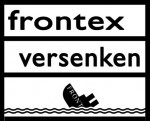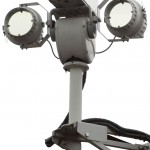Browse: Page 25
By europolice on 14. Februar 2012
 FBI request for social media app
FBI request for social media app
The FBI says the system is only meant to monitor publicly available information and would not focus on specific individuals or groups but on words related to criminal activity. The FBI says the system is only meant to monitor publicly available information and would not focus on specific individuals or groups but on words related to criminal activity. (Reuters)
The U.S. government is seeking software that can mine social media to predict everything from future terrorist attacks to foreign uprisings, according to requests posted online by federal law enforcement and intelligence agencies.
Hundreds of intelligence analysts already sift overseas Twitter and Facebook posts to track events such as the Arab Spring. But in a formal “request for information’’ from potential contractors, the FBI recently outlined its desire for a digital tool to scan the entire universe of social media — more data than humans could ever crunch.
The Department of Defense and the Office of the Director of National Intelligence also have solicited the private sector for ways to automate the process of identifying emerging threats and upheavals using the billions of posts people around the world share every day. (more on cbc.ca)
Posted in Datenbanken, English, European Police, Software/ IT
By europolice on 13. Februar 2012
 Jason Magder
Jason Magder
The Conservative government plans to introduce this week a law that would allow police to better monitor web-surfing habits of Canadians and to track them with electronic surveillance.
The law would require Internet service providers (ISPs) to install equipment that would allow them to monitor and preserve the Internet surfing activities of their customers. The providers could be asked by police to collect and preserve surfing data of anyone suspected in engaging in criminal activity.
Known as the Lawful Access law, Bill C-51 also would make it easier for law enforcement authorities to activate tracking mechanisms within cellphones to monitor the whereabouts of suspected criminals.
If they’re suspected of being international terrorists, the law would allow such tracking for a year, rather than the current 60-day limit, according to a previous incarnation of the law introduced last year. (more on winnipegfreepress.com)
Posted in English, European Police, Kommunikation, Software/ IT
By europolice on 13. Februar 2012
 Pravin Prashant
Pravin Prashant
Indian mobile operators are moving fast on LBS (location based services) which was not the case a couple of months ago. Large operators like Reliance, Tata, Vodafone, Idea, and Videocon have already floated RFP and are in a hurry to meet the deadline set by the Ministry of Communications IT. Some operators are still in the process of preparing the RFP whereas others are still waiting to see how things unfold before taking the leap.
So, if things go as per plan we will see pan India rollout of LBS within 4-6 months time. This would be of great help to law enforcement agencies as it will help in location positioning of terrorists‘ mobile phones in the country and help catch them before they can engage in any terror activity.
On the other hand, we are also seeing a number of state governments coming out with RFP on lawful interception. (more on voicendata.ciol.com)
Posted in English, Kommunikation
By europolice on 13. Februar 2012
 Deutschlands oberster Datenschützer Peter Schaar sieht Mängel bei der vom Bund eingesetzten Trojanersoftware zur Überwachung von Computern.
Deutschlands oberster Datenschützer Peter Schaar sieht Mängel bei der vom Bund eingesetzten Trojanersoftware zur Überwachung von Computern.
In seinem Prüfbericht kommt er nach Informationen der Nachrichtenagentur dpa zu dem Ergebnis, dass die Software die Datenschutzanforderungen nicht erfüllt. Schaar erinnerte auch daran, dass das Bundesverfassungsgericht gefordert hat, bei heimlichen Überwachungen den Kernbereich privater Lebensgestaltung zu schützen. Das aber werde missachtet. Die Programme, die im Kampf gegen schwere Kriminalität eingesetzt werden, hatten für viel Wirbel gesorgt. (weiter auf focus.de)
Posted in Kommunikation, Software/ IT
By europolice on 13. Februar 2012
IOM has conducted a training of trainers (ToT) for law enforcement officers in Zambia, using a newly developed handbook on the country’s 2008 Anti-Human Trafficking Act.
The five-day training, held at the National Police Training College in the capital Lusaka was designed to provide participants with the necessary skills to train other law enforcement officers on how to implement Zambia’s anti-human trafficking law.
The course focused on the need for sensitivity in dealing with victims of human trafficking. Eighteen law enforcement officers from the Zambia Police, the Department of Immigration and the Ministry of Home Affairs Research and Planning Unit (HARID). arious government departments attended. Continue reading „Zambian Law Enforcement Officers Train to Implement Counter Trafficking Law“
Posted in Border Control, English, European Police
By europolice on 12. Februar 2012
 Israel Aerospace Industries’ (IAI) Heron Unmanned Aerial System (UAS) was recently demonstrated successfully and according to the plan, this time in Greece, as part of a demonstration held by the European Union (EU) agency, Frontex.
Israel Aerospace Industries’ (IAI) Heron Unmanned Aerial System (UAS) was recently demonstrated successfully and according to the plan, this time in Greece, as part of a demonstration held by the European Union (EU) agency, Frontex.
During the demonstration a number of IAI payloads were employed successfully to detect potential targets, for monitoring anti-smuggling and other illegal activity operations in both the ground and maritime arenas. Among the payloads demonstrated were IAI’s Tamam Division Multi-mission Optronic Stabilized Payload (MOSP), and ELTA’s, an IAI group and subsidiary, Maritime Patrol Radar (MPR).
Heron UAS successfully demonstrated precise ISR capabilities and Automatic Takeoff and Landing (ATOL) which allow Heron full operational activity in difficult weather conditions.
Frontex, a specialized and independent EU body, is tasked with coordinating operational cooperation between Member States in the field of border security. Continue reading „Heron UAV Demonstrates Anti-Smuggling Monitoring Capabilities For the EU“
Posted in Border Control, Drohnen, English
By europolice on 12. Februar 2012
 Die Bundesregierung hat nach Mitteilung von Heute im Bundestag auf eine Kleine Anfrage der Linksfraktion zur computergestützten Kriminaltechnik bei Polizeibehörden (PDF-Datei) geantwortet. Obwohl etliche Passagen der Antwort insbesondere zum Einsatz der stillen SMS nur in der Geheimschutzstelle des Bundestags eingesehen werden können und nicht für die Öffentlichkeit bestimmt sind, ergibt sich doch ein anschauliches Lagebild des Softwareeinsatzes bei Bundespolizei, Bundeskriminalamt (BKA) und Zoll. Danach prägt neben der BKA-Eigenentwicklung „Inpol-Fall“ die ab Herbst 2005 eingesetzte Software B-Case bzw. rsCase der Firma Rola Security die Fallbearbeitung bei der Bundespolizei und dem BKA. Im Zollbereich ist das von T-Systems entwickelte Programm „Inzoll“ im Einsatz. Bei der Vorgangsbearbeitung kommt eine Eigenentwicklung beim BKA zum Einsatz, während die Bundespolizei mit „@rtus-Bund“ von Dataport arbeitet. (weiter auf heise.de)
Die Bundesregierung hat nach Mitteilung von Heute im Bundestag auf eine Kleine Anfrage der Linksfraktion zur computergestützten Kriminaltechnik bei Polizeibehörden (PDF-Datei) geantwortet. Obwohl etliche Passagen der Antwort insbesondere zum Einsatz der stillen SMS nur in der Geheimschutzstelle des Bundestags eingesehen werden können und nicht für die Öffentlichkeit bestimmt sind, ergibt sich doch ein anschauliches Lagebild des Softwareeinsatzes bei Bundespolizei, Bundeskriminalamt (BKA) und Zoll. Danach prägt neben der BKA-Eigenentwicklung „Inpol-Fall“ die ab Herbst 2005 eingesetzte Software B-Case bzw. rsCase der Firma Rola Security die Fallbearbeitung bei der Bundespolizei und dem BKA. Im Zollbereich ist das von T-Systems entwickelte Programm „Inzoll“ im Einsatz. Bei der Vorgangsbearbeitung kommt eine Eigenentwicklung beim BKA zum Einsatz, während die Bundespolizei mit „@rtus-Bund“ von Dataport arbeitet. (weiter auf heise.de)
Posted in BKA, Datenbanken, European Police, Kommunikation, Secret Service, Software/ IT
By europolice on 11. Februar 2012
 Hintergrund: In Berlin findet der 15. Europäische Polizeikongreß statt. Die zunehmende »Vernetzung« verschiedener Behörden führt zu immer umfassenderer Bespitzelung
Hintergrund: In Berlin findet der 15. Europäische Polizeikongreß statt. Die zunehmende »Vernetzung« verschiedener Behörden führt zu immer umfassenderer Bespitzelung
Von Ulla Jelpke
Am 14. und 15. Februar findet, wie jedes Jahr, in Berlin wieder der Europäische Polizeikongreß statt. Er hat bisweilen den Charakter einer Verkaufsmesse: Während sich Experten vom Fach auf Podien und in Foren zu Details polizeilicher Arbeit und Strategien austauschen, findet in den Gängen des Kongreßzentrums eine große Verkaufsschau statt. Alles, was im Sicherheitsbereich forscht, produziert und verkauft, ist vertreten. (weiter auf jungewelt.de)
Posted in Europäischer "Polizeikongress"
By europolice on 10. Februar 2012
 LOS ANGELES — The LAPD is fighting crime from a high-tech war room that gives it eyes all over the city. The surveillance hub is now a model for police forces around the world and KCAL9 got an exclusive tour inside from Chief Charlie Beck.
LOS ANGELES — The LAPD is fighting crime from a high-tech war room that gives it eyes all over the city. The surveillance hub is now a model for police forces around the world and KCAL9 got an exclusive tour inside from Chief Charlie Beck.
“We are targets on our own soil,” says Beck. “We have to be ready.”
What began as a grass roots idea following the 9/11 terrorist attacks is now a state-of-the-art real-time analysis critical response center. It’s called RACR, and it’s located in the heart of downtown Los Angeles.
“This is a system that cuts through the red tape, that gets information to the people that need it,” says Chief Beck. He calls it “the brains of the department, twenty-four/seven.”
Police in the activity center monitor live feeds of city and traffic cameras, counter-terrorism information, and real-time crime mapping, with cutting edge software. (more on losangeles.cbslocal.com)
Posted in Crowd Control, English, European Police, Software/ IT
By europolice on 9. Februar 2012
 Seit es sie gibt, entziehen sich Geheimdienste jeglicher demokratischen Kontrolle, da sie fürchten, ihre Macht über die Definition von Sicherheit und Gefahr zu verlieren. Denn nur wer bestimmen kann, was sicher ist und was gefährlich, bestimmt auch die Maßnahmen, um diese Zustände herbeizuführen.
Seit es sie gibt, entziehen sich Geheimdienste jeglicher demokratischen Kontrolle, da sie fürchten, ihre Macht über die Definition von Sicherheit und Gefahr zu verlieren. Denn nur wer bestimmen kann, was sicher ist und was gefährlich, bestimmt auch die Maßnahmen, um diese Zustände herbeizuführen.
Mit der Errichtung des Europäischen Auswärtigen Dienstes (EAD) werden drei Abteilungen der EU zu einem neuen Geheimdienst mit fragwürdiger Verantwortlichkeit und Transparenz vereint. Die Assoziierung von internen und externen sowie zivilen und militärischen Aufgaben im Rahmen der EU führt zu gefährlichen Machtstrukturen, bei denen ungeklärt ist, wie weit ihre Befugnisse reichen. Ziele dieser Neuerungen sind eindeutig die Ausweitung des interventionistischen Einflusses der EU weltweit und eine verstärkte Zusammenarbeit im Bereich der inneren Sicherheit.
Das „EU-Außenministerium“
Mit Inkrafttreten des Vertrags von Lissabon am 1. Dezember 2009 wurde das Amt der/des EU-Außenbeauftragten ins Leben gerufen. Es entstand aus der Zusammenlegung der Ämter der Hohen Vertreterin / des Hohen Vertreters für die Gemeinsame Außen- und Sicherheitspolitik (GASP) und der Kommissarin / des Kommissars für Außenbeziehungen, deren Aufgaben sich durch die Neuerungen des Vertrags von Amsterdam 1999 bereits teilweise überschnitten. Continue reading „Europa will hoch hinaus – Der EU-Geheimdienst entsteht“
Posted in European Police, Militaer, Secret Service
By europolice on 8. Februar 2012
 On 13 January 2012 in the Paris appeal court, the presiding judge in the appeal involving six of the ten detainees in the Vincennes detention centre (CRA, centre de rétention administrative) who were convicted on 17 March 2010 in connection with a fire that burned down the CRA on 22 June 2008 read the ruling that upheld their convictions and shortened the sentences they were set to serve by six months.
On 13 January 2012 in the Paris appeal court, the presiding judge in the appeal involving six of the ten detainees in the Vincennes detention centre (CRA, centre de rétention administrative) who were convicted on 17 March 2010 in connection with a fire that burned down the CRA on 22 June 2008 read the ruling that upheld their convictions and shortened the sentences they were set to serve by six months.
The ruling noted that the Vincennes detention centre was „artificially divided“ into two and that the large numbers held there „facilitated the disturbances“, and that external factors such as the fact that fire extinguishers were not charged, the mattresses were not fire-proof and that the facility was supported by a light structure helped the fire to grow. Thus, MD received the longest sentence, 30 months, four others were handed two-year prison sentences, and the sixth was sentenced to serve six months. Two defendants were also ordered to pay 9,864.22 euros to compensate the injuries suffered by police officers, and 50 euros to five civil plaintiffs. Continue reading „France: Convictions stand, shorter sentences on appeal for Vincennes detention centre fire“
Posted in English, Justiz
By europolice on 8. Februar 2012
 An undercover police officer „chased himself round the streets“ for 20 minutes after a CCTV operator mistook him for suspect.
An undercover police officer „chased himself round the streets“ for 20 minutes after a CCTV operator mistook him for suspect.
By Andrew Hough
The junior officer, who has not been named, was monitoring an area hit by a series of burglaries in an unnamed market town in the country’s south.
As the probationary officer from Sussex Police searched for suspects, the camera operator radioed that he had seen someone “acting suspiciously” in the area.
But he failed to realise that it was actually the plain-clothed officer he was watching on the screen, according to details leaked to an industry magazine.
The operator directed the officer, who was on foot patrol, as he followed the „suspect“ on camera last month, telling his colleague on the ground that he was „hot on his heels“. (more on telegraph.co.uk)
Posted in English, European Police
By europolice on 8. Februar 2012
 In recent years geographical information systems have becoming increasingly popular with law enforcement agencies, helping to predict crime hotspots, burglaries, and other incidents
In recent years geographical information systems have becoming increasingly popular with law enforcement agencies, helping to predict crime hotspots, burglaries, and other incidents
In recent years geographical information systems have becoming increasingly popular with law enforcement agencies, helping to predict crime hotspots, burglaries, and other incidents.
With amateur meth labs popping up across the country and flooding communities with the dangerous drug, researchers at Kansas State University have developed a sophisticated geospatial predictive algorithm that can map out where these hazardous labs are most likely to spring up next. Continue reading „Predictive tools help police map crime before it happens“
Posted in English, European Police, Forschung, Software/ IT
By europolice on 8. Februar 2012
 Ausgewählt von Ronen Steinke
Ausgewählt von Ronen Steinke
Nicht nur jene Drohnen, die töten, stehen derzeit im Mittelpunkt politischer Kontroversen, sondern auch jene, die nur filmen. Während die Kampfdrohnen der US-Armee mit ihren Spannbreiten bis zu 17 Metern mächtigen Raubvögeln gleichen, kommen Aufklärungsdrohnen eher den namensgebenden Bienen nahe: Teils nur 40 Zentimeter breit, sammeln und übermitteln sie Informationen. Die US-Armee will ihre Zahl in Irak und Afghanistan deutlich aufstocken, vielleicht auch in anderen Teilen des Mittleren Ostens. Darüber ist unter Menschenrechtsbloggern ein heftiger Streit entbrannt, nachdem zwei Menschenrechtsaktivisten in einem Gastbeitrag für die New York Times jüngst eine provokante Forderung aufstellten: (weiter auf sueddeutsche.de)
Posted in Drohnen
By europolice on 8. Februar 2012
 Bürgerrechtsorganisationen informierten über neue digitale Schnüffelwerkzeuge von Polizei und Geheimdiensten. Ihr Einsatz bewegt sich oftmals in einer rechtlichen Grauzone. Die öffentliche Auseinandersetzung war bislang schwach.
Bürgerrechtsorganisationen informierten über neue digitale Schnüffelwerkzeuge von Polizei und Geheimdiensten. Ihr Einsatz bewegt sich oftmals in einer rechtlichen Grauzone. Die öffentliche Auseinandersetzung war bislang schwach.
Von Uwe Sievers
Die Methoden aus George Orwells Roman »1984« gehören längst ins Museum. Facebook bietet einen ergiebigen Fundus für Ermittlungsbehörden, und Verbindungsdaten von Telefonen lassen sich mit Flugbuchungs- und Bankdaten verknüpfen. Schnell entstehen umfassende Bewegungs- und Sozialprofile: Wer hat welche Rolle, wer kennt wen, wer befindet sich wo? Behörden setzen immer mehr auf digitale Überwachungstechnologien, um Milliarden elektronischer Geräte in Echtzeit zu verfolgen und Verhaltensmuster der Nutzer analysieren zu können.
Vieles davon wird in der nächsten Woche beim europäischen Polizeikongress in Berlin präsentiert werden. Voriges Wochenende diskutierten rund 100 Bürgerrechtler und Politaktivisten bei einer Tagung in Berlin über die neuen Kontrollmethoden und was dieser »digitale Tsunami« für soziale Bewegungen bedeutet. (weiter auf neues-deutschland.de)
Posted in BKA, Datenbanken, Europäischer "Polizeikongress", European Police, Forschung, Kommunikation, Remote Forensic, Secret Service, Software/ IT, Was tun?
By europolice on 7. Februar 2012
 Letter to the mothers, wives, children and families of the Somali men in prison in Hamburg, Germany.
Letter to the mothers, wives, children and families of the Somali men in prison in Hamburg, Germany.
We write this letter although you don’t know us and we don’t know you. We write to you because we got to know these 10 boys and men on trial, whom you have been missing for two years.
Recently, the prosecutor has asked for long prison sentences for all of the accused. We don’t know what the final verdict will be, but each of them have two lawyers who are trying to get the best result for them.
We want to assure you that your people are not completely alone here. We know that they miss you very much. A while ago, we decided to start visiting them. The younger ones have had visits for one year now. Not all of the older ones have been visited yet, but we hope that more people will join us, so that everyone can get visits. Continue reading „A Letter to the Families of the Accused“
Posted in Border Control, English
By europolice on 6. Februar 2012
 Bürgerrechtler, Netzaktivisten und Anwälte diskutierten in Berlin über Möglichkeiten digitaler Überwachung und den Schutz davor
Bürgerrechtler, Netzaktivisten und Anwälte diskutierten in Berlin über Möglichkeiten digitaler Überwachung und den Schutz davor
Von Matthias Monroy
Gegenstrategien im »digitalen Tsunami« – darüber diskutierten rund 100 Teilnehmer einer Konferenz am Samstag in Berlin-Kreuzberg. Bei drei Podiumsdiskussionen wurde über die Zugriffe auf die beiden meistgenutzten digitalen Kommunikationsmittel, nämlich auf Mobilfunkgeräte und Computer, durch Polizei und Geheimdienste informiert. Eingeladen hatten unter anderem der Republikanische Anwältinnen- und Anwälteverein, der Arbeitskreis Vorratsdatenspeicherung und die kleine Gruppe data:recollective, die zu grenzüberschreitenden Polizeidatenbanken recherchiert. Ziel der Tagung war es zudem, die verschiedenen Akteure zusammenzubringen, die sich kritisch mit dem Einsatz neuer Ermittlungs- und Überwachungstechnologien beschäftigen.
Der Titel der Konferenz »Soziale Bewegungen im digitalen Tsunami« nahm Bezug auf ein Zitat europäischer Innenminister, die sich 2007 in einer sogenannten »Zukunftsgruppe« organisiert hatten. Unter Rädelsführerschaft der deutschen EU-Präsidentschaft publizierte der informelle Zusammenschluß ein Forderungspapier, um Polizeien und Geheimdiensten den Zugang zu erwarteten »gewaltigen Informationsmengen« zu erleichtern. (weiter auf jungewelt.de)
Posted in BKA, Datenbanken, Europäischer "Polizeikongress", European Police, Kommunikation, Policing Major Events, Software/ IT, Verschlüsselung, Was tun?
By europolice on 6. Februar 2012
 Als Maßnahme gegen Einwanderer ohne gültige Papiere hat Griechenland mit dem Bau einer Zaunanlage an der Grenze zur Türkei begonnen. Bei einem Besuch der Baustelle sagte Bürgerschutzminister Christos Papoutsis laut der Nachrichtenagentur Ana, es handle sich um ein „Bauwerk von praktischem und symbolischen Wert“ zur Abschreckung von illegaler Einwanderung. Von der Anlage gehe die klare Botschaft aus, „dass man in Griechenland nicht beliebig ein- und ausgeht“.
Als Maßnahme gegen Einwanderer ohne gültige Papiere hat Griechenland mit dem Bau einer Zaunanlage an der Grenze zur Türkei begonnen. Bei einem Besuch der Baustelle sagte Bürgerschutzminister Christos Papoutsis laut der Nachrichtenagentur Ana, es handle sich um ein „Bauwerk von praktischem und symbolischen Wert“ zur Abschreckung von illegaler Einwanderung. Von der Anlage gehe die klare Botschaft aus, „dass man in Griechenland nicht beliebig ein- und ausgeht“.
Der Minister verwies auf die Unterstützung der Türkei für das knapp 5,5 Millionen Euro teure Bauvorhaben, das aus einem doppelten Stacheldrahtzaun in Höhe von 2,5 Metern besteht. Der 10,3 Kilometer lange Zaun verläuft an dem Grenzabschnitt, an dem der Fluss Evros in die Türkei fließt. 25 Wärmekameras sollen die Grenzschützer unterstützen. Continue reading „Griechenland baut Sperrzaun an Grenze zur Türkei“
Posted in Border Control
By europolice on 3. Februar 2012
 Immer mehr technische Möglichkeiten gibt es für immer mehr Überwachung. Rettung naht: Die taz erklärt, wie man sich schützt und zurückschlägt.von S. Heiser / M. Kaul
Immer mehr technische Möglichkeiten gibt es für immer mehr Überwachung. Rettung naht: Die taz erklärt, wie man sich schützt und zurückschlägt.von S. Heiser / M. Kaul
Kameraüberwachung, Funkzellenauswertung, stille SMS: Die technischen Mittel, mit denen die Polizei gegen Demonstrationen und Protestaktionen vorgehen kann, differenzieren sich immer stärker aus.
Damit wollen sich Protestaktivisten und Bürgerrechtler auf einer Tagung „Soziale Bewegungen im digitalen Tsunami“ am Samstag in Berlin auseinandersetzen. Einen Tag lang geht es um Überwachungstechniken der Polizei und was man dagegen unternehmen kann.
Beteiligt an der Tagung sind Organisationen wie der Republikanische Anwältinnen- und Anwälteverein, der Arbeitskreis Vorratsdatenspeicherung, das Komitee für Grundrechte und Demokratie und das data:recollective, eine Gruppe, die sich grenzübergreifend kritisch mit Entwicklungen innerer Sicherheit in der Europäischen Union auseinandersetzt. (weiter auf taz.de)
Posted in Crowd Control, Drohnen, European Police, Kommunikation, Software/ IT, Was tun?
By europolice on 2. Februar 2012
Posted in Drohnen, Forschung
 FBI request for social media app
FBI request for social media app
















